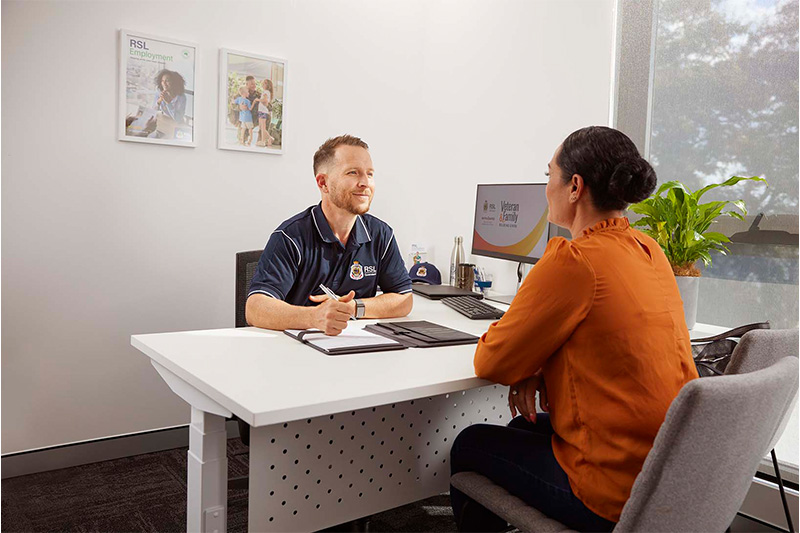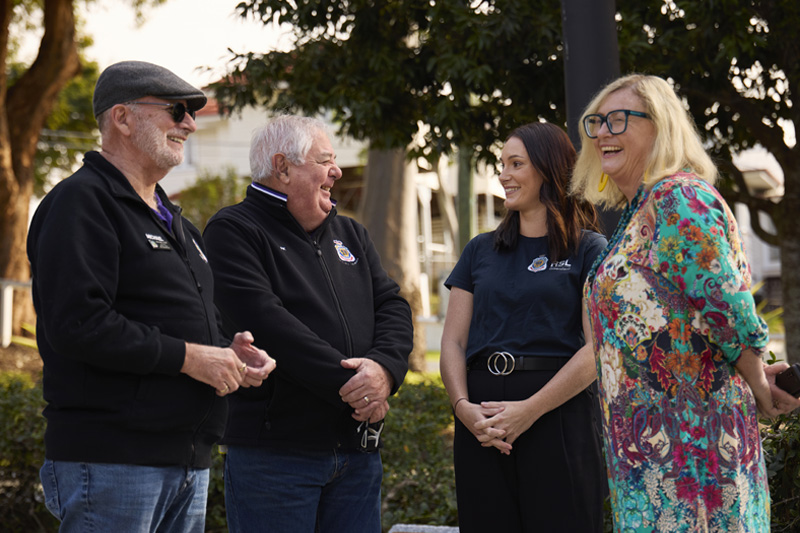15 September 2025
Advocating for veterans, one claim at a time
Advocacy has been a cornerstone of RSL Queensland’s mission since its formation in 1916. While the Repatriation Commission (now the Department of Veterans’ Affairs or DVA) didn’t exist at the time, RSL Queensland’s origins are steeped in social justice, as returned soldiers sought to build their own support systems post-World War I.
Much has changed since 1916, but the RSL has remained the voice of veterans in Queensland. In taking this role and responsibility seriously, RSL Queensland has maintained a strong track record in DVA claims and appeals, which continues to this day.
Understanding the available advocacy options is key to helping veterans make informed decisions for themselves and their families, based on individual circumstances and needs.
Accessing advocacy support: Things to consider
Transitioning from service to civilian life can often be a daunting process, especially for those unsure how to navigate the DVA claims and appeals process. To support veterans through this transition, RSL Queensland offers a range of services to assist veterans with their physical, mental, financial and social wellbeing.
One area of these many services is the DVA Advocacy program – an accredited, nationally recognised service offered free of charge to help veterans and their families navigate the DVA claims and appeals process. RSL Queensland’s DVA Advocacy service is accredited by the Quality Improvement Council (QIC).

RSL Queensland is a no-cost provider, which means its DVA Advocacy support is free to access. An added benefit of going through this service is the ability to connect with a broader range of support services should additional or urgent help be needed.
According to RSL Queensland Deputy CEO – Veteran Services Troy Watson, it’s important to consider the broader advocacy landscape when deciding which services veterans may engage in.
“If you decide to embark on your own advocacy services outside of RSL Queensland, you will likely find that the veteran advocacy sector is broad and there are both fee-for-service and free providers available in this space,” Troy says.
“We encourage you to understand your need for advocacy services, any payment requirements for the service and the formal training and experience of your advocate, before commencing the process.”
How RSL Queensland advocates can help
RSL Queensland acknowledges the dedication of its team of highly trained, hard-working advocates who support the veteran community with compassion and professionalism every day.
Advocates include both employees of RSL Queensland and District Offices, as well as volunteers within individual Sub Branches. Many advocates are veterans themselves, bringing valuable lived experience to their roles.
All advocates are formally trained under the Advocacy Training and Development Program (ATDP), meaning they are nationally recognised and qualified to assist veterans in accessing compensation and wellbeing services.
Compensation Advocates Michael Muir, Mark Gallagher, Ash Marshall and Kendall Morrison
“The mission of our advocates is to make your DVA claim a simpler and less stressful process than going it alone,” Troy explains.
Advocates provide support at every stage, from helping with claim and appeal submissions (including documentation requirements), liaising with the DVA on your behalf, and providing updates on your claim or appeal’s progress.
Advocates can also refer you to additional free RSL Queensland services where needed, such as the RSL Employment Program and online programs like RSL Be:Well. Advocacy support is available through in-person meetings, phone calls or virtual appointments, depending on an individual’s preference.
See more: Four reasons to use an RSL Queensland Compensation Advocate
Continuous improvement of RSL advocacy
RSL Queensland is committed to continuous improvement and is actively working to enhance and streamline its programs to provide the greatest benefit possible to veterans. In keeping this commitment, the organisation has identified three goals over the next five years to strengthen advocacy.
“First, we plan to deepen our collaborations with other RSL State Branches to uplift our national advocacy capabilities for veterans and their families,” Troy says.
“Second, we intend to act on the outcomes of legislation and evolve our compensation advocacy capabilities.
“And third, we want to make it easier for veterans to reach our advocates, whether that’s in person, over the phone or online.”
Get help with your DVA claims
If you need help with the DVA claims process call 134 RSL (134 775), or visit your local RSL Sub Branch.

